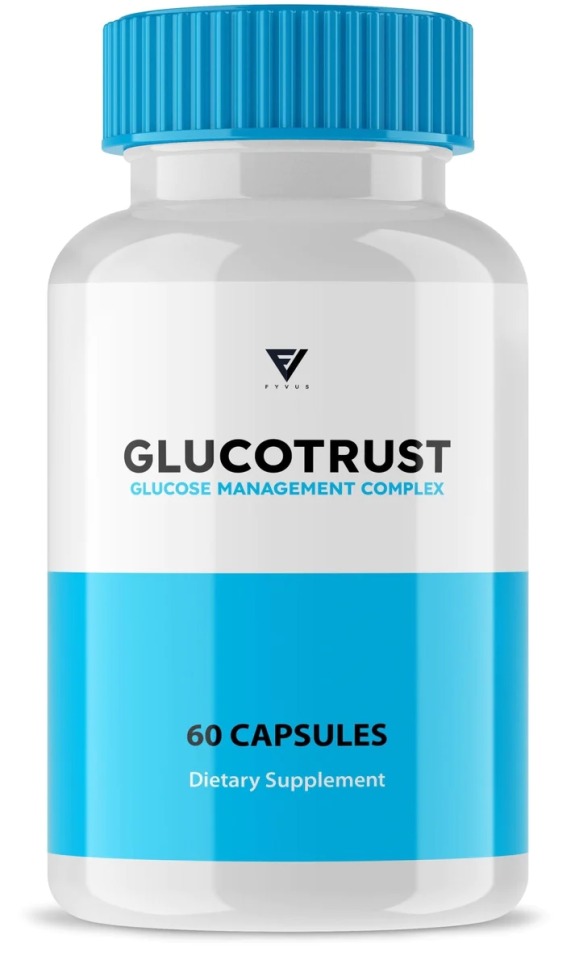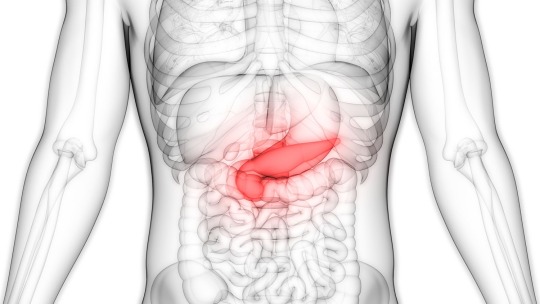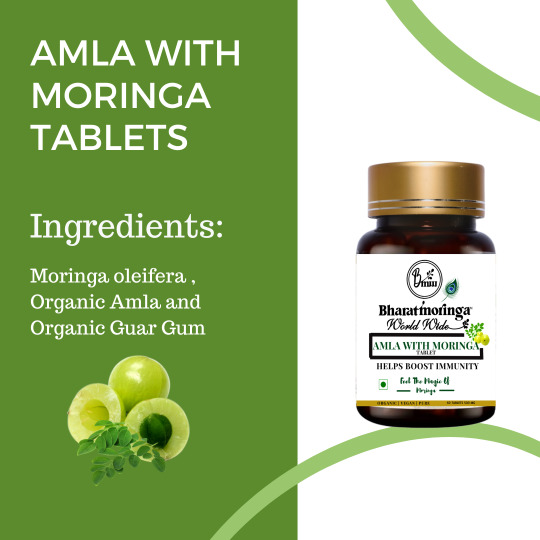#holistic approach to blood sugar management
Text
Unlock Optimal Blood Sugar and Blissful Sleep: The Secret Revealed in GlucoTrust!
Experience optimal blood sugar levels, enhanced sleep, and reduced cravings.
GlucoTrust: Unleash the power of Gymnema sylvestra, Biotin, Chromium, Manganese, Licorice root, Cinnamon, Zinc, and Juniper berries. Experience optimal blood sugar levels, enhanced sleep, and reduced cravings. Choose your package, backed by a 180-day money-back guarantee, and embark on a journey of boundless health.
Healthy Genius Approved!
GET IT HERE!

View On WordPress
#achieve hormonal balance#ally against sugar cravings#ally for healthy aging#ancient wisdom behind Licorice root#balancing hormones for overall well-being#Biotin benefits for blood sugar management#boost metabolism naturally#chromium supplement for improved metabolism#cinnamon&039;s role in promoting healthy blood pressure#comprehensive solution for diabetes management#comprehensive solution for metabolic health#connection between blood sugar and weight loss#discover the power of Gymnema sylvestra#empowering body&039;s natural healing processes#enhancing energy and mood#harnessing power of herbal remedies#healthy hair and skin with Biotin#historical uses of Gymnema sylvestra in Ayurveda#holistic approach to blood sugar management#impact of cortisol on blood sugar and belly fat#impact on insulin sensitivity#improve liver health#juniper berries the immune-boosting ingredient#key to balanced blood sugar levels#leptin and appetite control solution#licorice root the ancient weight loss remedy#link between blood sugar and cardiovascular health#managing blood sugar naturally#manganese for insulin production and brain function#natural remedy for sugar addiction
0 notes
Video
youtube
షుగర్(Diabetes)టాబ్లెట్స్ తీసుకోవడంలో చేస్తున్న ఈ తప్పు వల్లే కంట్రోల్ క...
#youtube#DrSatishErra DrSatishErraHomeopathy DrSatishErraclinic Diabetes management Homeopathy remedies guide Holistic approach Blood sugar control
0 notes
Text
Type 2 Diabetes and Januvia: Managing Blood Sugar Levels Effectively
Welcome to the esteemed Well Health Hub, a premier repository of authoritative and exhaustive health-related knowledge. Within the confines of this discourse, we shall embark upon a profound exploration of the intricate intricacies inherent in Type 2 Diabetes, leaving no stone unturned in our quest to comprehend the manifold dimensions of this malady. Moreover, we shall endeavor to illuminate the…

View On WordPress
#Age#Blood Glucose Regulation#blood sugar levels#Blood Sugar Monitoring#Cardiovascular Health#Chronic Metabolic Disorder#Clinical Studies#Comprehensive Diabetes Management#diabetes awareness#Diabetes Management#Efficacy#Ethnicity#Family history#FAQs#gestational diabetes#Gestational Diabetes Risk#Health Information#healthcare#Healthcare provider#Holistic Approach#Incretin Hormones#Insulin Resistance#Januvia#Januvia Benefits#Januvia Dosage#Januvia Efficacy#Lifestyle Changes#medication#Medication adherence#obesity
0 notes
Text
How do I reduce my belly fat?

Reducing belly fat involves a combination of dietary, lifestyle, and exercise strategies. While spot reduction (losing fat from a specific area) is not entirely possible, adopting a holistic approach can help you achieve overall fat loss, including from the abdominal region. Here are some tips to help you reduce belly fat:
Healthy Eating Habits:
Balanced Diet: Focus on a balanced diet that includes a variety of fruits, vegetables, lean proteins, and whole grains. Limit processed foods, sugary snacks, and high-fat foods.
Portion Control: Be mindful of portion sizes to avoid overeating. Eating smaller, more frequent meals throughout the day can help regulate blood sugar levels and control hunger.
Stay Hydrated:
Drinking an adequate amount of water is crucial for overall health and can also help control appetite. Sometimes, thirst is mistaken for hunger.
Regular Exercise:
Cardiovascular Exercise: Engage in regular aerobic exercises such as brisk walking, running, cycling, or swimming. These activities help burn calories and promote overall fat loss.
Strength Training: Include strength training exercises to build muscle. Muscle burns more calories at rest, contributing to increased metabolism.
Abdominal Exercises:
While targeted abdominal exercises won't spot-reduce fat, they can strengthen and tone the muscles in that area. Include exercises like planks, crunches, and leg raises in your routine.
Get Enough Sleep:
Lack of sleep can lead to hormonal imbalances, including an increase in cortisol (stress hormone), which has been linked to abdominal fat accumulation. Aim for 7-9 hours of quality sleep per night.
Manage Stress:
Chronic stress can contribute to weight gain, especially around the abdominal area. Practice stress-reducing activities such as meditation, deep breathing, or yoga.
Limit Added Sugars:
High sugar intake, especially from sugary beverages and processed foods, can lead to weight gain, including abdominal fat. Read labels and be conscious of hidden sugars in your diet.
Choose Healthy Fats:
Include sources of healthy fats in your diet, such as avocados, nuts, seeds, and olive oil. These fats can help keep you satisfied and are essential for overall health.
Be Patient and Consistent:
Healthy, sustainable weight loss takes time. Be patient and stay consistent with your healthy habits. Crash diets and extreme exercise regimens are often not effective in the long run.
Remember, individual responses to diet and exercise can vary. It's advisable to consult with a healthcare professional or a registered dietitian before making significant changes to your diet or exercise routine, especially if you have any underlying health conditions.
Check Here Best Weightloss Tips and Tricks
#fatty#feedee and feeder#low cal diet#low cal meal#low cal restriction#low calorie meals#mealsp0#ed meals#meals#mealspo#mealspø#ana meal#thinner is better#weight loss#loose weight#i wanna lose weight#4nor3xia#@na tips#ed not sherran#calories
7 notes
·
View notes
Text
The Role of Yoga and Ayurveda in Diabetes Management
Healing from Within: The Role of Yoga and Ayurveda in Diabetes Management
Step into a world where ancient wisdom meets modern science as we explore the profound impact of yoga and Ayurveda on diabetes management. In an era of escalating stress and sedentary lifestyles, the holistic approach of these ancient practices offers a beacon of hope in the management of diabetes. Through targeted postures, breathwork, and meditation, yoga unfolds its therapeutic benefits, promoting insulin sensitivity and reducing blood sugar levels. Meanwhile, Ayurveda, with its personalized approach, delves into herbal remedies, dietary modifications, and lifestyle recommendations to restore the body's balance and vitality. As we delve into the nexus of these time-honored practices and the contemporary understanding of diabetes, discover how their integration can empower individuals to embark on a transformative journey towards holistic well-being. Join us as we unravel the compelling synergy between ancient traditions and modern diabetes management, offering a roadmap for self-healing from within.
Understanding Diabetes and its Management
Diabetes is a chronic condition characterized by high levels of glucose in the blood. It can result from inadequate insulin production, ineffective use of insulin, or both. The management of diabetes involves controlling blood sugar levels to prevent complications. Conventional treatments often include medication, insulin injections, and dietary modifications. However, the holistic approach of yoga and Ayurveda offers complementary avenues for managing diabetes. By understanding the underlying causes and impacts of diabetes, individuals can make informed choices about incorporating these ancient practices into their lifestyle.
Yoga and Ayurveda offer a holistic perspective on diabetes, considering the interconnectedness of mind, body, and spirit. Rather than simply treating the symptoms, they address the root causes of imbalance, aiming to restore harmony and well-being. As we delve deeper into the specific practices and principles of yoga and Ayurveda, we will uncover their profound potential in transforming the lives of those grappling with diabetes.
Yoga Practices for Diabetes Management
Yoga, an ancient practice originating in India, encompasses a diverse range of techniques designed to promote physical, mental, and spiritual well-being. When tailored for diabetes management, yoga practices can play a crucial role in regulating blood sugar levels and enhancing overall health. Asanas, or yoga postures, are a fundamental aspect of yoga practice. Specific asanas, such as the Sun Salutation (Surya Namaskar), the Shoulder Stand (Sarvangasana), and the Seated Forward Bend (Paschimottanasana), have been found to be particularly beneficial for individuals with diabetes.
In addition to asanas, pranayama, or breath control techniques, are integral to yoga practice. Deep breathing exercises, such as Anulom Vilom (alternate nostril breathing) and Kapalbhati (skull shining breath), can help improve insulin sensitivity and reduce stress levels, both of which are essential for managing diabetes. Furthermore, meditation and relaxation techniques in yoga can alleviate the psychological and emotional stress associated with diabetes, promoting a sense of calm and balance.
Ayurvedic Approach to Diabetes
Ayurveda, often referred to as the "science of life," is an ancient system of medicine that originated in India over 5,000 years ago. Central to Ayurveda is the concept of individual constitution, or dosha, which influences one's physical, mental, and emotional characteristics. In the context of diabetes, Ayurveda emphasizes the balance of the three doshas – Vata, Pitta, and Kapha – to manage the condition effectively. Ayurvedic treatments for diabetes typically involve a combination of herbal remedies, dietary modifications, and lifestyle recommendations tailored to an individual's doshic constitution.
Herbs such as bitter melon (Momordica charantia), fenugreek (Trigonella foenum-graecum), and turmeric (Curcuma longa) are commonly used in Ayurveda to regulate blood sugar levels and improve insulin sensitivity. Additionally, dietary guidelines in Ayurveda emphasize the consumption of whole foods, such as whole grains, legumes, and fresh vegetables, while minimizing the intake of processed and sugary foods. Lifestyle modifications, including stress-reducing practices, regular exercise, and adequate sleep, are also integral to the Ayurvedic approach to managing diabetes.
Benefits of Yoga and Ayurveda for Diabetes
The integration of yoga and Ayurveda into diabetes management offers a myriad of benefits beyond the regulation of blood sugar levels. These ancient practices promote overall well-being by addressing the physical, mental, and emotional aspects of health. Yoga and Ayurveda can enhance insulin sensitivity, promote weight management, reduce inflammation, and improve cardiovascular health – all of which are crucial considerations for individuals with diabetes.
Moreover, the holistic nature of yoga and Ayurveda fosters a sense of empowerment and self-awareness, allowing individuals to develop a deeper understanding of their bodies and the factors influencing their health. By incorporating these practices into their daily routine, individuals can cultivate resilience, balance, and vitality, ultimately enhancing their ability to manage diabetes effectively and lead a fulfilling life.
Incorporating Yoga and Ayurveda into Daily Routine
The integration of yoga and Ayurveda into daily routines can be a transformative endeavor for individuals seeking to manage diabetes holistically. Establishing a regular yoga practice, even if it involves just a few minutes of gentle stretching and breathing exercises each day, can yield significant benefits. Similarly, incorporating Ayurvedic dietary principles, such as mindful eating, balanced meals, and the inclusion of diabetes-friendly herbs and spices, can contribute to better blood sugar control and overall health.
Furthermore, the incorporation of mindfulness and stress-reducing techniques, such as meditation and relaxation exercises, can help individuals develop resilience in the face of the challenges posed by diabetes. By making these practices a part of their daily routine, individuals can experience a profound shift in their well-being, fostering a sense of empowerment and self-healing from within.
Dietary Recommendations in Ayurveda for Diabetes
Diet plays a pivotal role in the management of diabetes, and Ayurveda offers valuable insights into dietary recommendations tailored to individual constitutions. The emphasis on whole, unprocessed foods, as well as the inclusion of specific herbs and spices, can contribute to better blood sugar control and overall health. In Ayurveda, dietary guidelines for diabetes revolve around balancing the doshas, promoting digestion, and managing excess sugar in the body.
For individuals with diabetes, incorporating foods that are naturally low in glycemic index, such as leafy greens, bitter gourds, and whole grains, can help regulate blood sugar levels. Additionally, Ayurvedic principles advocate mindful eating, emphasizing the importance of savoring each meal, chewing food thoroughly, and being attuned to one's body's hunger and satiety cues. By aligning dietary choices with the principles of Ayurveda, individuals with diabetes can optimize their nutritional intake and support their overall well-being.
Case Studies and Success Stories
The profound impact of yoga and Ayurveda on diabetes management is exemplified by numerous case studies and success stories. Individuals who have integrated these ancient practices into their daily lives have reported improvements in blood sugar control, reduced dependence on medications, and an enhanced sense of well-being. From gentle yoga postures to personalized Ayurvedic regimens, these individuals have experienced a transformative shift in their relationship with diabetes, empowering them to take charge of their health and lead fulfilling lives.
These success stories serve as a testament to the potential of yoga and Ayurveda in diabetes management, inspiring others to explore these holistic avenues for well-being. By sharing these experiences, we can illuminate the path for individuals seeking alternative approaches to managing diabetes, offering them hope and guidance in their journey towards self-healing.
The Science Behind Yoga and Ayurveda for Diabetes
While the therapeutic benefits of yoga and Ayurveda for diabetes have been widely acknowledged, the scientific understanding of their mechanisms continues to evolve. Research studies have demonstrated the positive impact of yoga on insulin sensitivity, glucose metabolism, and stress reduction in individuals with diabetes. Similarly, clinical trials investigating the efficacy of Ayurvedic herbal formulations and dietary interventions have shown promising results in managing blood sugar levels and mitigating the complications associated with diabetes.
The convergence of modern scientific research and ancient wisdom provides a compelling foundation for the integration of yoga and Ayurveda into diabetes management. By bridging the gap between traditional practices and contemporary evidence, individuals and healthcare professionals can gain a deeper understanding of the multifaceted benefits of these holistic approaches, paving the way for their wider adoption in the management of diabetes.
Conclusion
In conclusion, the integration of yoga and Ayurveda offers a holistic and empowering approach to diabetes management. By incorporating targeted yoga practices, breathwork, meditation, herbal remedies, dietary modifications, and lifestyle recommendations, individuals with diabetes can embark on a transformative journey towards holistic well-being. The profound synergy between ancient traditions and modern diabetes management illuminates a path for self-healing from within, empowering individuals to cultivate resilience, balance, and vitality. As we continue to unravel the compelling nexus of yoga, Ayurveda, and diabetes management, we pave the way for a future where ancient wisdom and modern science converge to enhance the well-being of individuals worldwide.
6 notes
·
View notes
Text

VITAMINS THAT CAN LOWER BLOOD SUGAR QUICKLY
Balancing blood sugar levels is crucial for maintaining overall health, especially for individuals with diabetes or those at risk of developing the condition. While diet, exercise, and medication play primary roles in managing blood sugar, certain vitamins and supplements can also significantly impact glucose control. This article explores vitamins known for their potential to lower blood sugar levels quickly and efficiently.
Vitamin D
Vitamin D plays a pivotal role in blood sugar regulation by enhancing the body's sensitivity to insulin, the hormone responsible for managing blood glucose levels. Insulin resistance is a common issue in individuals with type 2 diabetes, where the body fails to use insulin effectively, leading to elevated blood sugar levels. Studies suggest that maintaining adequate levels of vitamin D can improve insulin sensitivity and lower blood sugar, thus aiding in diabetes management.
Sources of Vitamin D:
Sunlight exposure
Fatty fish (salmon, mackerel, and sardines)
Fortified foods (milk, orange juice, and cereals)
Vitamin D supplements
Vitamin B1 (Thiamine)
Thiamine is essential for glucose metabolism, helping convert carbohydrates into energy. People with diabetes often have low levels of thiamine, which can contribute to higher blood sugar levels and complications. Thiamine supplements, particularly in the form of benfotiamine (a lipid-soluble derivative of thiamine), have been shown to improve glucose metabolism and reduce the risk of developing diabetes-related complications.
Sources of Vitamin B1:
Whole grains
Pork
Nuts and seeds
Legumes
Thiamine supplements, including benfotiamine
Vitamin B3 (Niacin)
Niacin, or vitamin B3, influences blood sugar control indirectly through its role in converting food into energy. However, high doses of niacin can increase blood sugar levels, making it necessary for individuals with diabetes or those at risk to consult a healthcare provider before taking niacin supplements.
Sources of Vitamin B3:
Turkey
Chicken breast
Peanuts
Mushrooms
Supplements, with medical guidance
Vitamin C
Vitamin C, an antioxidant, can lower blood sugar levels and help manage diabetes by improving glucose metabolism and protecting cells from damage caused by excess sugar in the blood. Research indicates that vitamin C supplementation can help reduce fasting blood sugar levels and improve blood sugar control in people with type 2 diabetes.
Sources of Vitamin C:
Citrus fruits (oranges, lemons, and grapefruits)
Kiwi
Strawberries
Bell peppers
Supplements
Magnesium
Though not a vitamin, magnesium is a crucial mineral that aids in blood sugar control. It plays a significant role in glucose metabolism and insulin action. Low levels of magnesium are linked to insulin resistance, a condition often preceding type 2 diabetes. Increasing magnesium intake through diet or supplements can improve insulin sensitivity and lower blood sugar levels.
Sources of Magnesium:
Spinach
Pumpkin seeds
Almonds
Avocado
Supplements
Chromium
Another essential mineral for blood sugar regulation is chromium. It enhances the action of insulin and is involved in carbohydrate, fat, and protein metabolism. Some studies suggest that chromium supplementation can have a beneficial effect on blood sugar levels, especially for those with diabetes.
Sources of Chromium:
Broccoli
Whole grains
Green beans
Nuts
Supplements
Conclusion
While vitamins and minerals can support blood sugar management, they should complement, not replace, standard treatments such as medication, a balanced diet, and regular physical activity. Always consult a healthcare provider before starting any new supplement, especially if you have diabetes or other health conditions, to ensure it's safe and appropriate for your specific health needs. By integrating these vitamins and minerals into a holistic approach to health, individuals can achieve better blood sugar control and improve their overall well-being.
#usascriphelpersofficial#diabetes care#diabetes treatment#diabetes mellitus#diabetes management#diabetes symptoms#insulin#diabetic#doctors#type 1 diabetic#type 2 diabetes
4 notes
·
View notes
Text
"Elevate Your Sip with Organic Guava Leaf Tea: Crafting a Nutrient-Packed Elixir of Wellness

What is guava tea?
Guava tea, derived from dried guava leaves, offers health benefits and a mildly sweet and herbal flavor. Rich in antioxidants and vitamin C, it's touted for potential immune support, digestive health, weight management, and blood sugar control. While generally safe, individuals with medical conditions should consult healthcare professionals before regular consumption.
In the realm of organic teas, our Guava Tea stands out as a pure infusion, a certified organic delight with USDA approval. Immerse yourself in the world of Te de Hojas de Guayaba, where No Sugar, No Caffeine, No Gluten, Vegan, and Non-GMO make it a guilt-free pleasure.
Embracing Pure Goodness:
Made exclusively from premium guava tea leaves, our organic tea is a beacon of purity. With no added sugar, zero caffeine, and no gluten, this brew caters to diverse preferences while remaining vegan and non-GMO.
Immunity Infusion:
Sip your way to an immune boost with guava tea leaves' antioxidants and vitamin C. This certified organic tea can be your ally in fostering a robust immune system, perfect for prioritizing wellness.
A Digestive Symphony:
Let the soothing properties of guava tea serenade your digestive wellness. Known for its gentle effects on the stomach, this tea offers relief from indigestion, promising a calm and soothing touch.
Weight Wellness Ritual:
Embark on a journey of weight management with the natural compounds found in guava leaves. This certified organic tea aligns with your wellness goals, providing a flavorful option that supports your holistic approach to health.
Blood Sugar Harmony Elixir:
Take a step towards balanced blood sugar levels with the potential benefits of guava leaf tea. While not a substitute for medical advice, this herbal elixir can be a delightful addition to your daily routine, contributing to overall well-being.
Crafting the Perfect Guava Tea Elixir:
Transform your tea-drinking experience with a bespoke Guava Tea Elixir. Combine a cup of freshly brewed guava tea with a splash of citrus for a zesty kick. Add a touch of honey or agave syrup for sweetness, and garnish with mint leaves for a refreshing twist. This concoction not only delights the taste buds but also amplifies the potential health benefits of guava leaf tea.
Conclusion:
Elevate your tea-drinking experience with our Certified Organic Guava Leaf Tea, a fusion of wellness and pure indulgence. Embrace the goodness of guava leaves without additives, revel in its potential health benefits, and take it a step further by crafting your personalized Guava Tea Elixir. Unwind, sip, and let the organic essence of guava leaves redefine your tea-drinking journey—one flavorful cup at a time.
3 notes
·
View notes
Text
What is Fadogia Agrestis? Unraveling the Mysteries behind the Testosterone Boosting Herb…
Discover the best Fadogia Agrestis supplements: https://bestsupplements-sac.com/best-fadogia-agrestis-supplements/
Read more on What is Fadogia Agrestis? on our website: https://super-achiever.com/
#fadogiaagrestis #testosteronebooster #testosteronebooster
Hello, Achiever Fam! 🌄
Today, we're taking you on a journey to the heart of the Amazon to uncover the secrets of Fadogia Agrestis, an ancient herbal marvel. 🍃🔍 Known as the "Black Aphrodisiac," this mysterious plant is grabbing the attention of wellness enthusiasts worldwide. Before you join the herbal adventure, let’s unravel the mysteries behind this testosterone-boosting herb. Don't forget to hit that subscribe button for more thrilling discoveries! 🛎️ The Power of Fadogia Agrestis: Thriving in the steamy jungles of Nigeria and Zambia, Fadogia Agrestis is stepping into the spotlight. 🌳🌞 A Natural Aphrodisiac: Traditionally hailed for enhancing libido, energy levels, and overall sexual health. ❤️🔥💪 Testosterone Boosting Effects: Its glycosides, a type of saponin, are believed to be responsible for boosting testosterone and aiding sexual dysfunction. 📈💥 Beyond Sexual Health: Studies are exploring its potential in regulating blood sugar and managing diabetes. 🩸🍬 A Remedy for Both Men and Women: Not just for men, women have used it too, to spark desire and vitality. 🚺🚹 Promotes Overall Well-being: A holistic approach to health, combating fatigue, stress, and improving sexual performance. 🌿✨ A Word of Caution: Not FDA regulated, so it's important to consult a healthcare professional before use. 🚫👩⚕️ Upcoming Guidance: Stay tuned for future videos where we'll guide you on the right dosage and usage of this power herb. 📚💡 There you have it, folks! Fadogia Agrestis – a mysterious herb with intriguing benefits.
If you've had any experiences with Fadogia, we'd love to hear from you! Drop a comment below, and remember to subscribe for more fascinating content from the Super Achievers Club. See you in the next video! 📹👋🌿
#fadogia agrestis#fadogia agrestis testosterone#testosterone#fadogia agrestis benefits#testosterone booster#fadogia agrestis dosage#fadogia agrestis before and after#fadogia agrestis review#increase testosterone#fadogia agrestis more plates#fadogia agrestis joe rogan#fadogia agrestis balls#fadogia agrestis extract#fadogia agrestis andrew huberman#natural testosterone booster#tongkat ali and fadogia agrestis#boost testosterone#fadogia agrestis side effects
2 notes
·
View notes
Text
PCOS Diet And Weight Loss in Us
Title: Empowering Women with PCOS: The Role of Diet and Weight Loss Strategies in the US by PCOS Diva
Polycystic Ovarian Syndrome (PCOS) affects millions of women worldwide, with prevalence rates as high as 10% in some populations. Among the myriad of symptoms and challenges associated with PCOS, weight management and dietary concerns stand out as crucial areas of focus. In the United States, PCOS Diva emerges as a beacon of hope and guidance, offering invaluable resources and support for women navigating the complexities of PCOS, particularly in terms of diet and weight loss strategies.
PCOS Diva recognizes that diet plays a pivotal role in managing PCOS symptoms and optimizing overall health. With this understanding, PCOS Diva advocates for a holistic approach to nutrition that goes beyond mere calorie counting or restrictive dieting. Instead, emphasis is placed on nourishing the body with whole, nutrient-dense foods that support hormone balance, regulate insulin levels, and promote sustainable weight loss.

Central to the PCOS Diva approach is the concept of the PCOS-friendly diet, which focuses on balancing macronutrients, selecting low-glycemic index foods, and prioritizing nutrient-rich options. By incorporating lean proteins, healthy fats, complex carbohydrates, and plenty of fruits and vegetables, women with PCOS can stabilize blood sugar levels, improve insulin sensitivity, and mitigate the metabolic disturbances associated with the condition.
Moreover, PCOS Diva recognizes the individualized nature of dietary needs and preferences among women with PCOS. Rather than prescribing a one-size-fits-all approach, PCOS Diva offers personalized guidance and flexible meal plans that empower women to make informed choices based on their unique circumstances and health goals. Whether following a gluten-free, dairy-free, or Mediterranean-inspired diet, women with PCOS can find support and resources tailored to their specific dietary preferences and requirements.
In addition to dietary considerations, PCOS Diva highlights the importance of incorporating regular physical activity into a comprehensive PCOS management plan. Exercise not only aids in weight management but also helps regulate menstrual cycles, reduce insulin resistance, and improve mood and energy levels. From gentle yoga and Pilates to high-intensity interval training (HIIT) and strength training, PCOS Diva encourages women to find enjoyable forms of exercise that fit their lifestyle and preferences.
youtube
Furthermore, PCOS Diva recognizes that sustainable weight loss is not just about counting calories or following a rigid diet plan; it's about cultivating a positive mindset, building healthy habits, and fostering self-care practices that support long-term well-being. Through coaching programs, support groups, and inspirational success stories, PCOS Diva empowers women with the knowledge, tools, and motivation needed to embark on their journey towards a healthier, happier life.
In conclusion, PCOS Diva serves as a beacon of empowerment and support for women with PCOS in the United States, particularly in the realms of diet and weight loss strategies. By advocating for a holistic approach to nutrition, personalized meal planning, and embracing physical activity as an essential component of PCOS management, PCOS Diva equips women with the resources and guidance needed to thrive despite the challenges of PCOS. With a focus on empowerment, education, and community support, PCOS Diva continues to inspire and uplift women as they navigate the complexities of living with PCOS and reclaim their health and vitality.
#PCOS Diet And Weight Loss in Us#PCOS Medication in Us#Polycystic Ovarian Syndrome Treatment in Us#PCOS Hormonal Imbalance Supplement in Us#PCOS Infertility And Pregnancy in Us#Youtube
2 notes
·
View notes
Text
Diabetes in Atlanta
Diabetes is a chronic condition that affects millions of people worldwide. It occurs when the body cannot properly regulate blood sugar levels, leading to a host of health problems. While medication is often necessary to manage diabetes, a holistic approach to management can greatly improve outcomes and reduce the risk of complications.
#functional medicine atlanta#atlanta#holistic medicine atlanta#functional medicine#integrative medicine atlanta#nina ross functional medicine#functional medicine doctor near me#integrative medicine#holistic medicine#functional medicine doctor#Diabetes in Atlanta#Balanced Diet#functional medicine practitioners#holistic approach#blood sugar levels
3 notes
·
View notes
Text
Role of Yoga and Meditation on Heart Health

In the fast-paced, stress-ridden world we live in today, maintaining cardiovascular wellness has become more crucial than ever. As we delve into the depths of this blog, we will explore the profound benefits that yoga and meditation can offer to support and enhance your heart health. To provide expert insights, we will also mention Dr. Amitabh Yaduvanshi, a renowned cardiologist at Holy Family Hospital, whose guidance has been instrumental in unraveling the mysteries of cardiac well-being.
Understanding Cardiovascular Wellness
Before we delve into the world of yoga and meditation, let's grasp the importance of cardiovascular wellness. Our heart, the ever-beating sentinel of life, pumps blood tirelessly, supplying oxygen and nutrients to every cell in our body. However, modern lifestyles characterized by sedentary routines, unhealthy eating habits, and chronic stress have put our hearts at risk. Cardiovascular diseases, including heart attacks and strokes, are leading causes of mortality worldwide.
To combat this alarming trend, individuals are increasingly turning to holistic approaches like yoga and meditation to nurture their cardiovascular health.
The Role of Yoga
Yoga is an ancient practice that seamlessly integrates physical postures, controlled breathing, and meditation. This multifaceted approach offers numerous benefits for heart health:
1. Stress Reduction: Chronic stress is a known contributor to cardiovascular diseases. Yoga, with its focus on mindfulness and relaxation, helps reduce stress hormones like cortisol. Dr. Amitabh Yaduvanshi, a distinguished cardiologist at Holy Family Hospital, highlights that stress reduction is a cornerstone of heart health.
2. Blood Pressure Management: High blood pressure is a major risk factor for heart disease. Regular practice of yoga has been shown to lower blood pressure levels, making it an effective tool in preventing hypertension.
3. Improved Circulation: Yoga postures promote better blood circulation, ensuring that vital organs, including the heart, receive an optimal supply of oxygen and nutrients.
4. Weight Management: Maintaining a healthy weight is crucial for heart health. Yoga encourages mindful eating and can help individuals achieve and maintain a healthy body weight.
5. Enhanced Cardiac Function: Certain yoga asanas (poses) are specifically designed to strengthen the heart muscle, improving its efficiency.
Meditation's Impact on Heart Health
Meditation complements yoga perfectly in the quest for cardiovascular wellness. Here's how it contributes:
1. Stress Reduction: Like yoga, meditation reduces stress by calming the mind and promoting relaxation. It can lower heart rate and improve heart rate variability, both of which are indicators of cardiovascular health.
2. Inflammation Control: Chronic inflammation is linked to heart disease. Meditation practices have been shown to reduce markers of inflammation in the body, protecting the heart.
3. Enhanced Emotional Well-being: Negative emotions like anger, anxiety, and depression can take a toll on the heart. Meditation fosters emotional balance and resilience, reducing the impact of these emotions on cardiovascular health.
4. Blood Sugar Regulation: Meditation can help regulate blood sugar levels, a critical aspect of preventing diabetes-related heart complications.
5. Improved Sleep: Quality sleep is vital for heart health. Meditation can aid in achieving restful sleep, contributing to overall wellness.
In the journey towards cardiovascular wellness, yoga and meditation emerge as potent allies. These ancient practices offer a holistic approach to managing stress, improving circulation, and enhancing emotional well-being, all of which are crucial for maintaining a healthy heart.
As Dr. Amitabh Yaduvanshi, a respected cardiologist at Holy Family Hospital, would agree, a comprehensive strategy that includes lifestyle changes like yoga and meditation can significantly reduce the risk of heart disease and promote overall health.
Remember, it's never too late to embark on the path to cardiovascular wellness. Start today, and let yoga and meditation guide you towards a heart-healthy future.
6 notes
·
View notes
Text
🔬 Understanding Pancreas and Osteopathy 🩺
The pancreas, a crucial organ in our body, plays a significant role in digestion and blood sugar regulation. However, when it encounters issues, it can lead to a range of symptoms that demand prompt medical attention. 📅
🚨 Symptoms to Watch Out For 🚨
❗️Unexplained Weight Loss: Sudden and significant weight loss without a clear cause could signal pancreas-related concerns.
❗️Abdominal Pain: Persistent pain in the upper abdomen that radiates to the back might be indicative of pancreatitis or other pancreatic issues.
❗️Digestive Troubles: Frequent indigestion, bloating, and greasy stools could hint at pancreatic insufficiency.
❗️Diabetes Onset: Unexplained or sudden diabetes could be linked to pancreas malfunction affecting insulin production.
❗️Jaundice: Yellowing of the skin and eyes can point to potential pancreatic or bile duct problems.
🏥 When to Seek Medical Care 🏥
If you or someone you know experience any of these symptoms, don't delay seeking medical attention. Timely diagnosis and intervention are vital in managing pancreas-related conditions effectively. Consulting a healthcare professional will ensure proper evaluation and tailored treatment plans.
💡 How Osteopathy Can Assist 💡
Osteopathy, a holistic approach to healthcare, can offer valuable support in addressing pancreas-related concerns. Osteopathic practitioners, known as osteopaths, focus on the body's self-healing mechanisms, aiming to improve overall health and well-being.
✅ Promoting Circulation: Osteopathic techniques can enhance blood flow to the pancreas, aiding its function and reducing inflammation.
✅ Alleviating Tension: By releasing tension in surrounding muscles and tissues, osteopathy can ease abdominal pain and discomfort.
✅ Supporting Digestion: Osteopathic manipulation may enhance digestion and nutrient absorption, aiding those with pancreatic insufficiency.
✅ Managing Stress: Stress can impact the pancreas, and osteopathy's relaxation techniques may help manage stress levels effectively.
Remember, while osteopathy can complement conventional medical care, it is essential to consult a qualified healthcare professional for a comprehensive assessment and treatment plan. Working collaboratively, medical professionals and osteopaths can provide holistic care for individuals with pancreas-related issues.
www.myophysio.ch
#PancreasHealth #OsteopathySupport #HolisticCare #HealthAndWellness #myophysio #aarau #buchsag




#physiotherapy#fisioterapia#osteopathy#myofascial release#fascia#physical therapy#massage#aarau#physiotherepist#chiropractor
5 notes
·
View notes
Text
The Impact of Excessive Sleep on Diabetics: Understanding the Consequences
Discover the effects of excessive sleep on individuals with diabetes. Learn about the potential risks, complications, and lifestyle adjustments necessary to manage this common condition effectively.
Well, you’re in for a treat! We’re about to dive deep into the curious connection between getting your Z’s and tackling diabetes, a pesky bugger that messes with your blood sugar levels. There are…

View On WordPress
#Balance#blood sugar control#Diabetes management#health#Holistic Approach#Insomnia#insulin sensitivity#Relaxation Techniques#Restful Slumber#Restorative Sleep#Sleep Apnea#Sleep Architecture#Sleep Deprivation#Sleep Disorders#Sleep Environment#Sleep Hygiene#Sleep Patterns#Sleep Quality#Sleep Routine#Sleep-Disordered Breathing#Sleeping#well-being
0 notes
Text
Best Acne Doctor in Yamunanagar
Acne, a common skin condition, affects millions of individuals worldwide. It not only impacts physical appearance but also takes a toll on self-esteem and confidence. In this post, we will discuss causes and symptoms of acne, as well as explore Ayurvedic and Homeopathic treatment options. We are proud to introduce Dr. Garg - Umeedhom (Scientific Clinic), who specializes in providing holistic solutions for managing acne.
Understanding Acne:
Acne is a skin disorder that occurs when hair follicles become clogged with oil, dead skin cells, and bacteria. It predominantly affects areas with a high concentration of oil glands, such as the face, chest, and back. While it is most commonly associated with adolescence, acne can persist into adulthood, causing discomfort and emotional distress.
Causes of Acne:
Several factors contribute to the development of acne:
Excess Sebum Production: Overactive oil glands produce more sebum, which can clog hair follicles and lead to acne.
Clogged Pores: The combination of dead skin cells and excess oil can create blockages in hair follicles, resulting in blackheads, whiteheads, and pimples.
Bacterial Infection: The bacterium Propionibacterium acnes can thrive in clogged hair follicles, causing inflammation and breakouts.
Hormonal Changes: Fluctuations in hormones, particularly during puberty, menstruation, pregnancy, and menopause, can trigger acne.
Diet and Lifestyle: Certain diets high in dairy, refined sugars, and processed foods, as well as high-stress levels, can exacerbate acne.
Symptoms of Acne:
The symptoms of acne can vary in severity:
Blackheads: Small, dark bumps that form when hair follicles become clogged and the top remains open.
Whiteheads: Similar to blackheads, but covered by a thin layer of skin, giving them a white appearance.
Papules: Small, red, raised bumps caused by infected or inflamed hair follicles.
Pustules: Red bumps with white or yellow centers, often referred to as "pimples."
Cysts: Large, painful, pus-filled lumps that form beneath the skin's surface.
Ayurvedic Treatment for Acne:
Ayurveda, an ancient holistic healing system, offers natural approaches to managing acne:
Herbal Cleansing: Cleansing herbs like neem and turmeric help purify the blood and detoxify the body.
Dietary Changes: Avoiding excessive spicy, oily, and junk foods, and incorporating fresh fruits, vegetables, and water can promote clear skin.
Herbal Supplements: Herbal supplements like guggul, amla, and manjistha can balance hormones and promote skin health.
Homeopathic Treatment for Acne:
Homeopathy addresses acne by considering the individual's constitution and symptoms:
Sulphur: Used for acne with intense itching and burning sensations on the skin.
Pulsatilla: Prescribed for acne worsened by rich, fatty foods and hormonal fluctuations.
Hepar Sulph: Suitable for acne that is extremely painful and sensitive to touch.
Meet Dr. Garg - Umeedhom (Scientific Clinic): Best Acne Doctor in Yamunanagar
Dr. Garg is a renowned practitioner at Umeedhom (Scientific Clinic), specializing in holistic approaches to acne management. With years of experience, Dr. Garg offers personalized Ayurvedic and Homeopathic treatments to address the root causes of acne and promote clear, healthy skin.
Conclusion:
Acne is a common skin condition with various underlying causes. While it can impact self-confidence, effective treatment options are available. Dr. Garg Your Skincare Expert (Scientific Clinic) offers personalized Ayurvedic and Homeopathic solutions that address acne's root causes, providing hope for those seeking clear and radiant skin. Remember, achieving healthy skin requires patience and consistency in following the recommended treatments.
#Best Acne Doctor in Yamunanagar#best ayurvedic doctor in yamunanagar#ayurvedic doctor near me#ayurvedicmedicine#ayurvedictreatment#bollywoodedit#skin care#ayurveda#ayurvedicherbs#sureshotherbals#Homeopathic Treatment for Acne#Ayurvedic Treatment for Acne
2 notes
·
View notes
Text
Twelve Incredible Foods for Lowering Blood Sugar: Unveiling the Hidden Magic Within
youtube
"🍽️ Discover the Hidden Magic: Twelve Incredible Foods for Lowering Blood Sugar 🌿 Are you ready to unearth the secrets to stabilizing blood sugar levels naturally? Welcome to a revelation that can transform your health journey! In this eye-opening video, we dive deep into the world of nutrition and wellness to unveil the astonishing power of twelve remarkable foods that work like magic to lower blood sugar. 🔮 Unveiling the Magic: Join us on a journey through science and nature as we reveal the hidden potential of these incredible foods. From nutrient-rich superfoods to kitchen staples with extraordinary properties, this video is your key to understanding how to support your body in achieving balanced blood sugar levels. 🥗 A Wholesome Approach: It's not just about individual foods; it's about embracing a holistic approach to health. Learn how these foods synergize with your lifestyle, making it easier to maintain stable energy levels and promote overall well-being. 💡 Knowledge is Power: Empower yourself with insights into how each food impacts your body. From avocados that slow down digestion to berries that combat inflammation, you'll gain valuable knowledge to make informed choices for your health. 🌟 Rewrite Your Health Story: Ready to take charge of your well-being? By incorporating these incredible foods into your diet, you're rewriting your health story for the better. Witness the transformation as you embark on a journey towards better blood sugar control and increased vitality. Whether you're managing blood sugar levels or simply seeking a healthier lifestyle, this video is your guide to embracing the hidden magic within these twelve incredible foods. Don't miss out on this opportunity to unlock the potential of your health. Hit that like button, subscribe for more enlightening content, and embark on a path to better wellness today!"
2 notes
·
View notes
Text
Unlocking the Power of Amla and Moringa: A Dynamic Duo for Health and Wellness

In the realm of natural superfoods, few stand as tall as Amla and Moringa. These two nutritional powerhouses, hailing from different corners of the plant kingdom, come together to create a dynamic duo that offers a plethora of health benefits. Whether you're looking to boost your immunity, enhance your skin's radiance, or fortify your overall well-being, Amla and Moringa might just be your secret weapons. Let's dive into the world of these remarkable plants and discover why they deserve a place in your daily routine.
Amla: The Indian Gooseberry
Amla, also known as Indian gooseberry, is a fruit that has been revered in traditional Ayurvedic medicine for centuries. This small, green fruit is packed with vitamin C, antioxidants, and various other essential nutrients. Here's why Amla deserves a spot on your wellness radar:
Immunity Booster: Amla's vitamin C content is unparalleled, making it a natural immune system enhancer. Regular consumption of Amla can help ward off infections and keep your body's defense mechanisms strong.
Glowing Skin: The antioxidants present in Amla play a crucial role in promoting healthy, radiant skin. They help combat free radicals, which can lead to premature aging and skin issues.
Hair Health: Amla is a common ingredient in hair care products due to its ability to strengthen hair follicles, reduce hair loss, and promote hair growth.
Digestive Aid: Amla supports digestion by stimulating the secretion of gastric juices and improving gut health. It can alleviate constipation and indigestion issues.
Diabetes Management: Research suggests that Amla may help regulate blood sugar levels, making it a potential ally for individuals with diabetes.
Moringa: The Miracle Tree
Moringa, often referred to as the "Miracle Tree" or "Drumstick Tree," is a plant native to tropical and subtropical regions. Every part of this tree, from its leaves to its seeds, is packed with nutrients and health benefits. Here's why Moringa is making waves in the health and wellness community:
Nutrient Powerhouse: Moringa leaves are rich in vitamins (A, C, E, and B-complex), minerals (calcium, magnesium, potassium), and essential amino acids, making it one of the most nutrient-dense foods available.
Anti-Inflammatory: The bioactive compounds in Moringa possess potent anti-inflammatory properties, which can help alleviate chronic inflammatory conditions.
Antioxidant Rich: Moringa's antioxidants, including quercetin and chlorogenic acid, combat oxidative stress, reduce cellular damage, and promote overall well-being.
Cholesterol Control: Studies suggest that Moringa may help lower bad cholesterol levels and reduce the risk of heart disease.
Energy Boost: Moringa's nutrient profile provides a sustainable energy boost without the crash associated with caffeine.
Amla and Moringa: A Powerful Combination
Imagine the possibilities when you combine the strengths of Amla and Moringa in your daily routine. The synergy of these two superfoods can create a holistic approach to health and wellness. Here's how you can integrate them:
Smoothies: Blend Amla and Moringa powder into your morning smoothie for an energizing and nutrient-packed start to your day.
Tea Infusions: Brew Amla and Moringa leaves to create a revitalizing herbal tea that supports your immune system and overall vitality.
Supplements: If sourcing fresh Amla and Moringa is a challenge, consider high-quality supplements that capture their benefits in convenient forms.
Beauty DIYs: Create homemade face masks, hair masks, and scrubs using Amla and Moringa to enhance your skin and hair health.
Culinary Delights: Incorporate dried Moringa leaves or Amla powder into your cooking to infuse dishes with an extra dose of nutrition.
In Conclusion
Amla and Moringa are nature's gifts to our well-being, offering an array of health benefits that span from immunity enhancement to radiant skin. By integrating these superfoods into your daily routine, you can harness the power of ancient wisdom and modern research to support a healthier and more vibrant you. Remember, a balanced diet, regular exercise, and consulting with a healthcare professional are all essential components of your wellness journey. Embrace the gifts of Amla and Moringa and embark on a path to holistic health and vitality.
2 notes
·
View notes